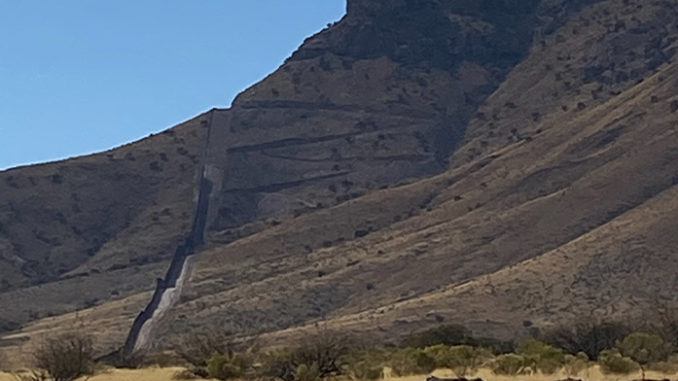
Despite admissions by local, state, and low-level federal authorities that the border is unsecured from Texas to California, the Biden Administration refuses to admit America has lost operational control of its southwest border.
The problem has been ignored since Inauguration Day 2021 and is getting worse, according to those doing their best to stem the tide. The result of the White House policy, or lack thereof, is Mexican cartels have grown in strength -economically, politically, and in shear physical force- to the point of controlling the 1,900-mile southwest border.
Which is why it is time to designate some of those cartels as terrorist groups, according to several members of Congress, including Rep. Andy Biggs (R-CD5).
In December 2021, more than 178,000 undocumented non-U.S. citizens (UNCs) were arrested, or encountered as federal officials call it, along the 1,900 mile southwest border. In that same month, Cochise County Sheriff Mark Dannels says 10,000 “get-aways” were recorded within the USBP Tucson Sector (Cochise, Pima, and Santa Cruz counties) alone.
Dannels also noted that 80 percent of getaways are single males, ages 20 to 30, who are being guided by Mexican cartel operatives.
Meanwhile, thousands of migrants -many in large family units- have been inundating the USBP Yuma Sector every day for several weeks. Federal law enforcement resources have been reassigned to fortify the Yuma area, leaving other areas the target of heightened drug trafficking efforts and smuggling of murderers, rapists, child molesters, and other high-risk violent criminals.
It is estimated that at least 50,000 violent criminals were encountered at the southwest border in 2021. Based on Dannels’ get-away ratio, that means thousands more made it into the U.S. unchecked, several hundred likely coming through Cochise County.
The strategy used by the Mexican cartels is working well due to a lack of attention and lack of support from the Biden Administration, according to former U.S. Border Patrol Chief Rodney Scott.
“They simply overwhelm agents with those massive numbers, and that creates other areas where there’s no law enforcement at all,” Scott recently said of the cartels. “That’s where they’re bringing the narcotics, the criminal aliens, the people that want to avoid arrest, for whatever reason, and they’re just pouring across at will. This is a crisis, and it is real.”
Violence and injuries in the United States are common byproducts of border activity by the cartel. In January, two USBP Tucson Sector agents were injured when attacked by UNCs in Cochise County. One attack in the early morning had community members on alert for more than six hours in a several-mile radius.
“The open border policies by this Administration are negatively impacting our county and our residents’ quality of life,” Dannels noted.
And while the cartels receive their smuggling payments up front, U.S. taxpayers along the border are footing the bill for emergency responses when something goes wrong.
Last week, four UNCs were being smuggled by Julio Cesar Saucedo, a U.S. citizen who tried to outrun USBP agents on a winding road in Santa Cruz County. Saucedo, 19, lost control and crashed into a rock embankment.
No agents were injured, but one UNC was hospitalized in Tucson with a head injury, according to the federal criminal complaint filed against Saucedo. The complaint also notes the UNCs were part of a larger group of 14 who simply crossed over “the small International Boundary fence” and were picked up by two vehicles.
The dire situation along the border prompted Representative Chip Roy of Texas to call out the Biden Administration once again for forfeiting operational control of the U.S. border to the Mexican cartels.
Roy is the main sponsor of H.R. 2600 “The Drug Cartel Terrorist Designation Act” which would designate some cartel factions as foreign terrorist organizations. Biggs and 44 other members of the U.S. House of Representatives support the bill, which is assigned to the House Judiciary Committee’s subcommittee on Crime, Terrorism, and Homeland Security.
However, Roy acknowledges there has been no action taken by the subcommittee. He says there are simply too many in Congress who do not want to equate deadly cartels operating along the U.S. border with terrorist groups such as the Taliban and ISIS.
“But to me, they are terrorizing the United States, they’re terrorizing people in Mexico,” Roy said. “They’re doing it purposely, they’re doing it for political power, they’re doing it to enrich themselves.”
